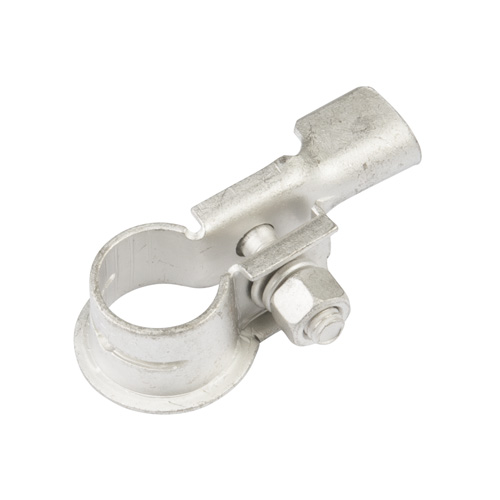Already wrote out the thing here:
http://www.hyundai-forums.com/lc-2000-20...tml#post3150321
"The negative battery terminal is starting to get corroded, and is loose. I have to jiggle the cable to get it to start. I'm shopping for battery terminals now. I've read that I'm going to have to strip the battery wires to get rid of the corrosion (but it's mild). I'd like to find some terminals that aren't junk. I've seen some that are $36 for a set, some junk ones that are $8 for a set.
There's another issue with starting that I haven't posted about, partly because it's likely the three belts that need to be replaced: the engine turns over once or twice, then stalls; i.e. *turns key* *electronic hum* *putt putt* *silence* It's done this when it's -10 to 10 F. Right now I've been researching every failure with the '03 Accent and trying to gather all of the parts and equipment I need. It's starting to creep into the $600 range. I plan to get everything, then do a marathon and replace every component I can at once. It's going to take a while to figure out what does not need replacement or is going to fail soon.
I'd like to know what the AWG is for the battery cables. Might be better protection against corrosion if I replace the cables at the same time. Someone on Amazon said that Pico military style terminals with lug rings crimped onto the battery cables would be effective. I should mention that there are no felt pads (to collect moisture, I guess), and the positive terminal is the only one that has a plastic hood."
(I've read what ikilledbarbie wrote in reply, I'm going to watch the service videos later).
What I really need to replace are the wire terminal connectors--the negative is already rusty and loose, and is a basic junky design. Maybe I can get by without replacing the wires, but for the Pico terminals at least, it sounds like I'm going to have to replace the lug rings on the wires. I just figured I should replace the wires while I'm at it if they aren't too expensive. If it turns out the starter motor is causing stalls, this project creep is going to get even creepier.
Might be nice to have recommendations for battery terminal anti-corrosion spray brands, instead of using whatever happened to be available at the store ten years ago and has been in the garage ever since. Same with anti-moisture components (e.g. hoods and felt disks).
http://www.hyundai-forums.com/lc-2000-20...tml#post3150321
"The negative battery terminal is starting to get corroded, and is loose. I have to jiggle the cable to get it to start. I'm shopping for battery terminals now. I've read that I'm going to have to strip the battery wires to get rid of the corrosion (but it's mild). I'd like to find some terminals that aren't junk. I've seen some that are $36 for a set, some junk ones that are $8 for a set.
There's another issue with starting that I haven't posted about, partly because it's likely the three belts that need to be replaced: the engine turns over once or twice, then stalls; i.e. *turns key* *electronic hum* *putt putt* *silence* It's done this when it's -10 to 10 F. Right now I've been researching every failure with the '03 Accent and trying to gather all of the parts and equipment I need. It's starting to creep into the $600 range. I plan to get everything, then do a marathon and replace every component I can at once. It's going to take a while to figure out what does not need replacement or is going to fail soon.
I'd like to know what the AWG is for the battery cables. Might be better protection against corrosion if I replace the cables at the same time. Someone on Amazon said that Pico military style terminals with lug rings crimped onto the battery cables would be effective. I should mention that there are no felt pads (to collect moisture, I guess), and the positive terminal is the only one that has a plastic hood."
(I've read what ikilledbarbie wrote in reply, I'm going to watch the service videos later).
What I really need to replace are the wire terminal connectors--the negative is already rusty and loose, and is a basic junky design. Maybe I can get by without replacing the wires, but for the Pico terminals at least, it sounds like I'm going to have to replace the lug rings on the wires. I just figured I should replace the wires while I'm at it if they aren't too expensive. If it turns out the starter motor is causing stalls, this project creep is going to get even creepier.
Might be nice to have recommendations for battery terminal anti-corrosion spray brands, instead of using whatever happened to be available at the store ten years ago and has been in the garage ever since. Same with anti-moisture components (e.g. hoods and felt disks).








